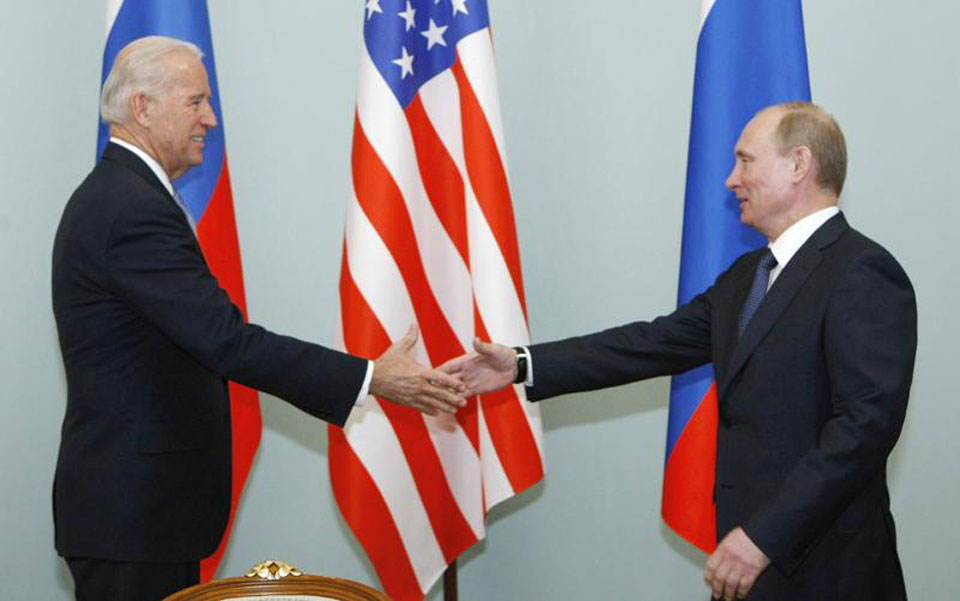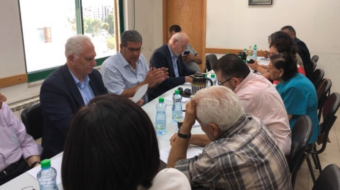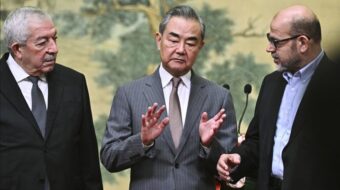
WASHINGTON—President Joe Biden will hold a summit with Russian President Vladimir Putin next month in Geneva, a face-to-face meeting between the leaders of the two countries with the largest nuclear arsenals.
Many who prefer a confrontational approach to U.S. relations with Russia have already been raising objections or at least concerns that there are not, because of recent tensions between the two countries, any real “deliverables” that Biden can get from the summit.
It’s as if reduction of tensions between the two nuclear powers and cooperation on a wide variety of things, not the least of which are climate change and the pandemic, were not important enough reasons for a meeting.
The White House confirmed details of the summit on Tuesday. The two leaders’ meeting, set for June 16, will constitute the end of Biden’s first international trip as president next month when he visits Britain for a meeting of Group of Seven leaders and Brussels for the NATO summit.
It can only be hoped that the NATO summit will refrain from the warmongering and threats that have characterized NATO policy since its inception after World War II. After the demise of the socialist countries in Europe in 1990, NATO has moved aggressively into countries that were part of the old Soviet-led Warsaw Pact military alliance, despite assurances from member countries, including the U.S., that it would not do so. NATO nuclear missiles are now stationed in Germany, and U.S. troops, under the banner of NATO, are in countries that were once part of the Soviet Union itself.
The Biden administration has characterized that meeting as a “gathering of allies” but has not offered specifics about what will be discussed there.
Regarding the summit with Putin, White House press secretary Jen Psaki said, “The leaders will discuss the full range of pressing issues, as we seek to restore predictability and stability to the U.S.-Russia relationship.”
White House officials said earlier this week that they were ironing out details for the meeting. National Security Advisor Jake Sullivan discussed details of the meeting when he met with his Russian counterpart, Nikolay Patrushev.
The Kremlin, in its own statement announcing the meeting, said that the presidents will discuss “the current state and prospects of Russian-U.S. relations, strategic stability issues, and the acute problems on the international agenda, including interaction in dealing with the coronavirus pandemic and settlement of regional conflicts.”
The White House, as opposed to some of what it has said in the past, is now claiming it is seeking a “stable and predictable” relationship with Russia while hawks in and out of the administration continue to push sanctions which, in any case, are not particularly effective against Russia, which has a network of international relations that don’t depend enough upon the U.S. or the European Union to the extent that sanctions would force it to back down on one issue or another.
Russia has been criticized for not preventing a recent ransom hacking campaign by a Russian company, Solar Winds, against a critical U.S. oil pipeline as and for alleged interference in the 2020 elections, which it has denied.
The Biden administration has also criticized Russia for the arrest and jailing of opposition leader Alexei Navalny. The administration has actually tamped down its criticisms concerning the treatment of Navalny as information about his pronounced racist and nationalist views surfaced.
The Biden administration has also admitted that it now actually has low confidence in the veracity of earlier reports that Russia paid bounties for the lives of U.S. soldiers in Afghanistan.
But even as Biden moved forward with sanctions, he is now saying that he held back on taking tougher action in an attempt to send the message that what he really wants is better relations with Russia, especially on things like climate change and control of the pandemic.
Hopefully this is a shift from his 2020 campaign when he described Russia as the “biggest threat” to U.S. security and alliances and used his anti-Russian rhetoric to disparage Donald Trump. It is the fascistic right wing, Trump backers, the GOP, and domestic terrorists, of course, that remain the biggest threat to U.S. security.
In an ABC News interview in March, Biden responded affirmatively when asked by interviewer George Stephanopoulos whether he thought Putin was “a killer.” Kremlin spokesman Dmitry Peskov said at the time that Biden’s comment demonstrated he “definitely does not want to improve relations” with Russia and that relations between the countries were “very bad.” Russia’s criticism of the hostile remarks made by Biden at that time, plus widespread criticism of those remarks here in the U.S., may also have helped contribute to the current moves by Biden toward better relations.












Comments